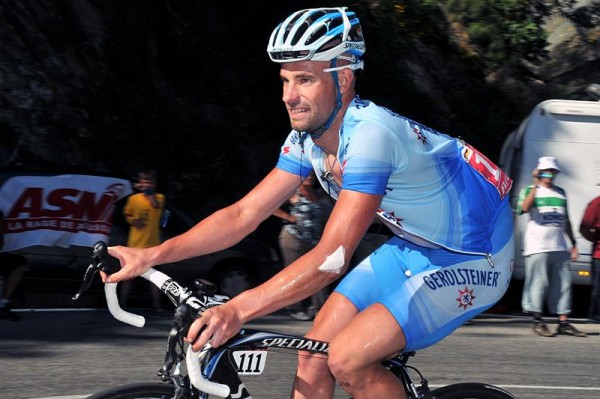McQuaid states delay could give green light to Schumacher
By Shane Stokes It's now over three months since the French anti-doping agency (AFLD) announced...

UCI may be forced to give licence due to AFLD delay
By Shane Stokes
It's now over three months since the French anti-doping agency (AFLD) announced Stefan Schumacher as positive for doping with blood booster Erythropoietin CERA, yet the International Cycling Union (UCI) may be forced to give him a 2009 racing licence due to delays with the sanctioning process. According to UCI President Pat McQuaid, the governing body needs to wait for the AFLD to move on the case and, until then, must act as if Schumacher is innocent.
"This is nothing to do with UCI at the moment," he said to Cyclingnews on Friday morning. "I don't know why it is taking this long. This test is one that was done in a national race in France, so therefore the results management is done by the national agency.
"Currently the results management on this case is being processed by the AFLD. As far as I am aware the process is in place. We are waiting for the outcome of that and then we will make a decision."
Schumacher won two stages in the Tour de France and held the leader's yellow jersey. After the race, the AFLD tested his blood samples and declared him positive for CERA. He had already signed a new 2009 racing contract with Belgian team Quick Step.
The Bund Deutscher Radfahrer (BDR, the German cycling federation) said this week that Schumacher had applied for a licence, but that it needed several questions to be answered before it would hand one out.
Get The Leadout Newsletter
The latest race content, interviews, features, reviews and expert buying guides, direct to your inbox!
BDR vice-president Udo Sprenger told Muax.de that it wanted the UCI to confirm if his registration and, if so, what team he is registered with. It wants the National Anti-Doping Agency (NADA) to contact the AFLD to determine the current status of the investigation, and it wishes to ascertain if Schumacher has a valid contract with Quick Step.
While he didn't want to voice his own opinion about whether or not Schumacher doped, the McQuaid appears willing to take things further if necessary. "If they make the decision to give a sanction to Schumacher, the UCI will recognise that sanction.
"Right now, we must wait for the outcome of the AFLD results management. If we are unhappy with it, we will ask for the file, study it and decide ourselves what to do. In other words if they decided not to give a sanction, we would obviously study the file to see why not."
Despite the positive tests, Schumacher has continued to insist he did nothing wrong and that he is entitled to both a racing licence and his contract with Quick Step. It would appear that until the AFLD makes a decision, the UCI may not be able to prevent the former from happening.
"In the meantime, strictly speaking – as in proper civil law – everyone is innocent until proven guilty," McQuaid said.
As regards Quick Step's contract, it would appear to depend on the details and clauses. "I don't know the terms of the contract with Quick Step," he said. "But once the process opens up, the team may have something in the contract that says that in the case of an A sample being positive, that the rider is suspended or something like that."
In October Quick Step's manager Patrick Lefevere suggested as such and said that the team would not recognise the deal.
"The contract that he signed on the eve of the Worlds in Varese will take effect on January 1, but I consider it as null and void," Lefevere said to Gazet van Antwerpen. "I have already written a statement for the moment that I will be officially informed about his positive test."
Schumacher has maintained his innocence, but all of the other riders deemed positive at the Tour de France by the AFLD for CERA have admitted their guilt.